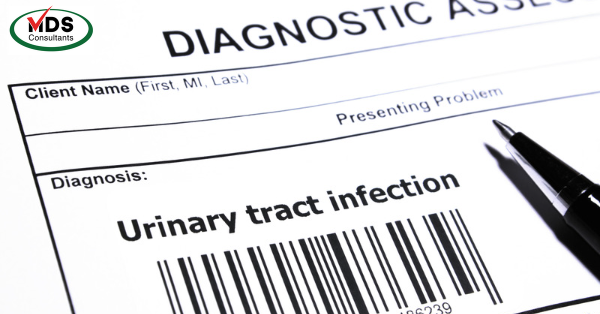Let’s start with an example.
- This facility completed an MDS Quarterly assessment with an ARD of 9/16.
- There is a physician’s order dated 9/1 that states Cipro 500mg twice daily for UTI.
Should the facility code the UTI as an active diagnosis in section I? The scenario does not give enough information to code the UTI.
The facility needs to determine if this is a true infection. To determine if this is a true infection, an evidenced-based tool must be used such as McGeer, Loeb, or NHSN.
Here is what the RAI states
- The UTI has a look-back period of 30 days for the active disease instead of 7 days.
- Code only if both of the following are met in the last 30 days:
-
- A physician documented UTI diagnosis (or by a nurse practitioner, physician assistant, or clinical nurse specialist if allowable under state licensure laws) in the last 30 days.
- It was determined that the resident had a UTI using evidence-based criteria such as McGeer, NHSN, or Loeb in the last 30 days, AND
Take the same scenario above but add some additional information. “The medical record does not reflect any signs or symptoms of UTI and the UA/C&S results + 1,000 cfu/ml bacteria from a voided sample.”
Now the answer is NO, the facility would not code the UTI. The rationale is that the resident doesn’t meet the definition of a true infection according to McGeer’s criteria (used for this example). It does not matter that the physician documented the UTI in the last 30 days. Both conditions must be met.
What if the resident is admitted with a diagnosis of a UTI?
- If the diagnosis of UTI was made prior to the resident’s admission, entry, or re-entry into the facility, it is not necessary to obtain or evaluate the evidence-based criteria used to make the diagnosis. A documented physician diagnosis of UTI before admission from an inpatient hospital stay is acceptable.
- When the resident is transferred from emergency room visit, observation stay, or community the facility must use evidence-based criteria to evaluate the resident and determine if the criteria for UTI are met AND verify that there is a physician-documented UTI diagnosis when completing I2300 Urinary Tract Infection (UTI).
